This section points to informative material and initiatives presenting HACID achievements.
Publications
Human–AI collectives most accurately diagnose clinical vignettes
Title:Human–AI collectives most accurately diagnose clinical vignettes
Author:N. Zöller, J. Berger, I. Lin, N. Fu, J. Komarneni, G. Barabucci, K. Laskowski, V. Shia, B. Harack, E.A. Chu, V. Trianni, R.H.J.M. Kurvers, & S.M. Herzog
Publication:PNAS 122 (24) e2426153122
Date:13.06.2025
AI systems, particularly large language models (LLMs), are increasingly being employed in high-stakes decisions that impact both individuals and society at large, often without adequate safeguards to ensure safety, quality, and equity. Yet LLMs hallucinate, lack common sense, and are biased—shortcomings that may reflect LLMs’ inherent limitations and thus may not be remedied by more sophisticated architectures, more data, or more human feedback. Relying solely on LLMs for complex, high-stakes decisions is therefore problematic. Here, we present a hybrid collective intelligence system that mitigates these risks by leveraging the complementary strengths of human experience and the vast information processed by LLMs. We apply our method to open-ended medical diagnostics, combining 40,762 differential diagnoses made by physicians with the diagnoses of five state-of-the art LLMs across 2,133 text-based medical case vignettes. We show that hybrid collectives of physicians and LLMs outperform both single physicians and physician collectives, as well as single LLMs and LLM ensembles. This result holds across a range of medical specialties and professional experience and can be attributed to humans’ and LLMs’ complementary contributions that lead to different kinds of errors. Our approach highlights the potential for collective human and machine intelligence to improve accuracy in complex, open-ended domains like medical diagnostics.
Logic Augmented Generation
Title:Logic Augmented Generation
Author:Aldo Gangemi, Andrea Giovanni Nuzzolese
Publication:Journal of Web Semantics, 85:100859, 2025
Date:01.05.2025
Semantic Knowledge Graphs (SKG) face challenges with scalability, flexibility, contextual understanding, and handling unstructured or ambiguous information. However, they offer formal and structured knowledge enabling highly interpretable and reliable results by means of reasoning and querying. Large Language Models (LLMs) may overcome those limitations, making them suitable in open-ended tasks and unstructured environments. Nevertheless, LLMs are hardly interpretable and often unreliable. To take the best out of LLMs and SKGs, we envision Logic Augmented Generation (LAG) to combine the benefits of the two worlds. LAG uses LLMs as Reactive Continuous Knowledge Graphs that can generate potentially infinite relations and tacit knowledge on-demand. LAG uses SKGs to inject a discrete heuristic dimension with clear logical and factual boundaries. We exemplify LAG in two tasks of collective intelligence, i.e., medical diagnostics and climate projections. Understanding the properties and limitations of LAG, which are still mostly unknown, is of utmost importance for enabling a variety of tasks involving tacit knowledge in order to provide interpretable and effective results.
Ontology Generation Using Large Language Models
Title:Ontology Generation Using Large Language Models
Author:Anna Sofia Lippolis, Mohammad Javad Saeedizade, Robin Keskisärkkä, Sara Zuppiroli, Miguel Ceriani, Aldo Gangemi, Eva Blomqvist, Andrea Giovanni Nuzzolese
Publication:The Semantic Web. ESWC 2025. Lecture Notes in Computer Science, vol 15718. Springer, Cham.
Date:01.06.2025
The ontology engineering process is complex, time-consuming, and error-prone, even for experienced ontology engineers. In this work, we investigate the potential of Large Language Models (LLMs) to provide effective OWL ontology drafts directly from ontological requirements described using user stories and competency questions. Our main contribution is the presentation and evaluation of two new prompting techniques for automated ontology development: Memoryless CQbyCQ and Ontogenia. We also emphasize the importance of three structural criteria for ontology assessment, alongside expert qualitative evaluation, highlighting the need for a multi-dimensional evaluation in order to capture the quality and usability of the generated ontologies. Our experiments, conducted on a benchmark dataset of ten ontologies with 100 distinct Competency Questions (CQs) and 29 different user stories, compare the performance of three LLMs using the two prompting techniques. The results demonstrate improvements over the current state-of-the-art in LLM-supported ontology engineering. More specifically, the model OpenAI o1-preview with Ontogenia produces ontologies of sufficient quality to meet the requirements of ontology engineers, significantly outperforming novice ontology engineers in modelling ability. However, we still note some common mistakes and variability of result quality, which is important to take into account when using LLMs for ontology authoring support. We discuss these limitations and propose directions for future research.
Hybrid Collective Intelligence for Decision Support in Complex Open-Ended Domains
Title:Hybrid Collective Intelligence for Decision Support in Complex Open-Ended Domains
Author:Vito Trianni, Andrea Giovanni Nuzzolese, Jaron Porciello, Ralf H. J. M. Kurvers, Stefan M. Herzog, Gioele Barabucci, Aleksandra Berditchevskaia, Fai Fung
Publication:Volume 368 of Frontiers in Artificial Intelligence and Applications. HHAI 2023: Augmenting Human Intellect, pages 124-137, IOS Press
Date:26.06.2023
Human knowledge is growing exponentially, providing huge and sometimes contrasting evidence to support decision making in the realm of complex problems. To fight knowledge fragmentation, collective intelligence leverages groups of experts (possibly from diverse domains) that jointly provide solutions. However, to promote beneficial outcomes and avoid herding, it is necessary to (i) elicit diverse responses and (ii) suitably aggregate them in a collective solution. To this end, AI can help with dealing with large knowledge bases, as well as with reasoning on expert-provided knowledge to support decision-making. A hybrid human-artificial collective intelligence can leverage the complementarity of expert knowledge and machine processing to deal with complex problems. We discuss how such a hybrid human-artificial collective intelligence can be deployed to support decision processes, and we present case studies in two different domains: general medical diagnostics and climate change adaptation management.
Automating hybrid collective intelligence in open-ended medical diagnostics
Title:Automating hybrid collective intelligence in open-ended medical diagnostics
Author:Ralf H. J. M. Kurvers, Andrea Giovanni Nuzzolese, Alessandro Russo, Gioele Barabucci, Stefan M. Herzog, and Vito Trianni
Publication:PNAS 120(34):e2221473120
Date:28.08.2023
In the United States, an estimated 250,000 people die annually from preventable medical errors, many of which originate during the diagnostic process. A powerful approach to increase diagnostic accuracy is to combine the diagnoses of multiple diagnosticians. However, we lack methods to aggregate independent diagnoses in general medical diagnostics. Using knowledge engineering methods, we introduce a fully automated solution to this problem. We tested our solution on 1,333 medical cases, each of which was independently diagnosed by ten diagnosticians. Our solution substantially increases diagnostic accuracy: Single diagnosticians achieved 46% accuracy, pooling the decisions of ten diagnosticians increased this to 76%. These results demonstrate that collective intelligence can reduce diagnostic errors, promoting health services and trust in the global medical community.
Public deliverables
D1.1 — IPR Management Plan
Title:D1.1 — IPR Management Plan
Author:CNR
Publication:HACID web
Date:16.02.2023
Talks and presentations
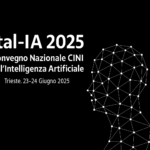
Leveraging graph-structured knowledge to enhance Collective Intelligence and improve diagnostic accuracy
AI for Medicine and Healthcare in the context of the Italian National Conference on Artificial Intelligence (Ital-IA 2025)

HACID Knowledge Graph for Climate Services
AI & robotics at work: Innovations driving productivity, organized by AI on Demand

Harnessing the power of human and artificial intelligence
UKCP Science and Services network – HACID and the UKCP chatbot
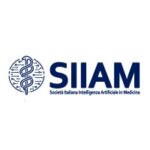
Hybrid Collevtive Intelligence for Medical Diagnostics
Second Annual Meeting of the Italian Society for AI in Medicine (SIIAM)
Harnessing AI and Data for Enhanced Decision Support
Evaluation challenges for hybrid systems – interactive workshop as part of ADRF 2024.

Learning from expert elicitation for climate decision-making: Informing participatory AI in climate services
Presentation as part of the AI&CI Satellite session at CCS

Collective intelligence and the real world
Keynote talk as part of the AI&CI Satellite session at CCS
International Applied Science and Services team meeting
Does AI mean that we do Climate Services differently? Presentation and discussion

London Data Week Webinar
How participation can improve your AI or data project
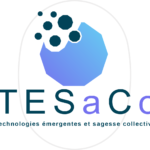
TeSaCo project closing colloquium – invited speech
Quelle sagesse collective pour les technologies émergentes? Colloque de clôture du cycle d’étude TESaCo- Technologies émergentes et sagesse collective

JCEEI AI Climate Services workshop
Joint Centre for Excellence for Environmental Intelligence meeting to discuss potential for using AI for climate services
Data & Society Participatory AI Practitioners Group
Participatory AI and collective intelligence

Uses of ML and AI across the weather & climate science to service value chain
Talk to Foreign, Commonweath and Development Office, a UK Government Department, by Dr Ed Pope from Met Office
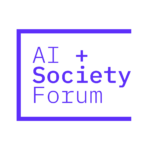
Participatory AI: Can Participation Improve the Design of AI Systems?
Workshop on Participatory AI as part of the AI & Society Forum in London
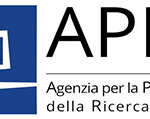
APRE: Dalla proposta alla valutazione
APRE Webinar: “Dalla proposta alla valutazione: incontro con coordinatori del Cluster 4”

Shaping priorities for investment in resilient, inclusive rural transformation (RITI)
Expert Consultation: Presentation of hybrid collective intelligence at the workshop organised at FAO
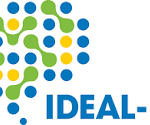
IDEAL-IST webinars: Tips from a coordinator
Webinar organised by the IDEAL-IST network.
The webinar hosted three coordinators from European Projects funded by the Horizon Europe programme under Cluster 4 (Digital, Industry and Space) to share their experience in the proposal preparation and project management. Vito Trianni presented the HACID project and the related challenges.